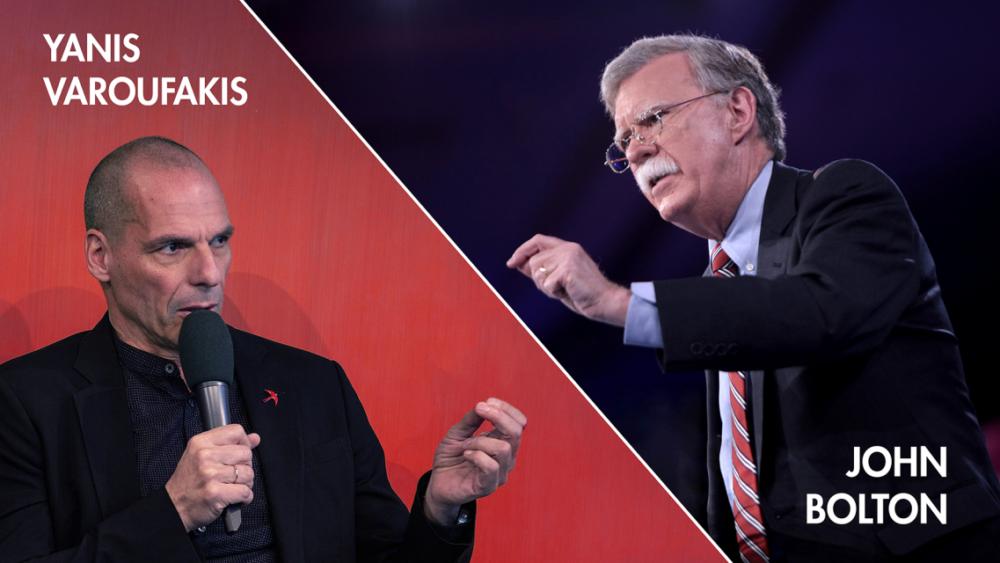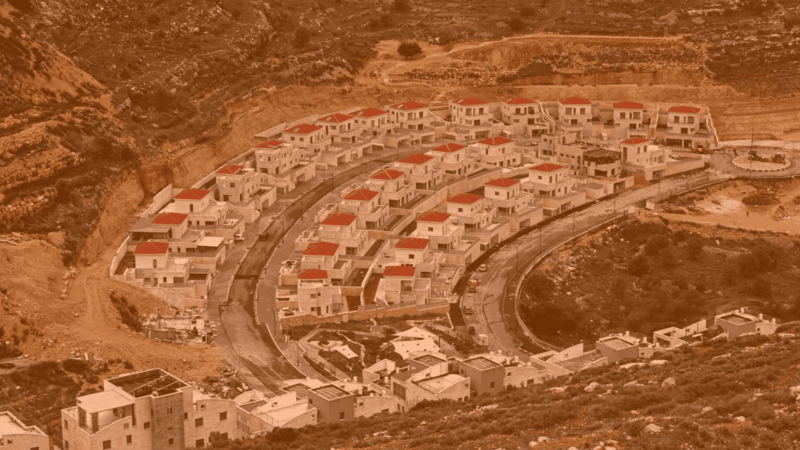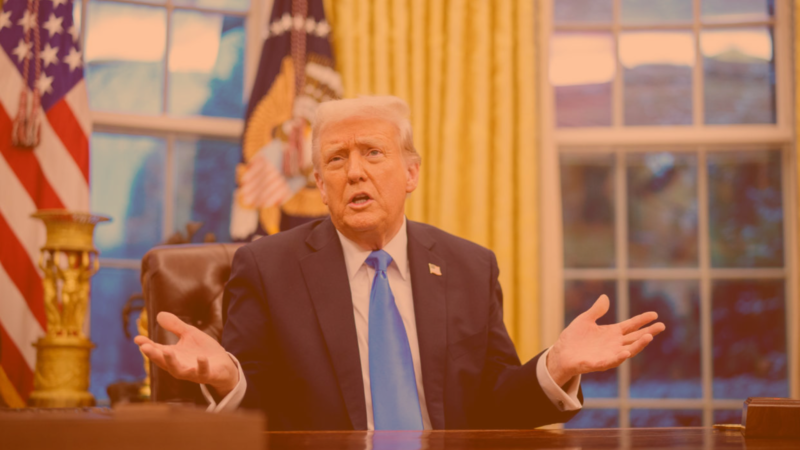At the Holberg Debate, John Bolton and Yanis Varoufakis differed on their perceived threats to global stability
This year’s Holberg Debate featured two heavyweights when it comes to global affairs: Professor Yanis Varoufakis and Ambassador John Bolton. They delivered an excellent exchange of ideas, showing large differences in their approaches. Varoufakis has and continues to take on the shortcomings within the European Union, through his work with MeRA25 and DiEM25, and Bolton has controversially challenged the United Nations. During his brief term, he was described by The Economist as: “The most controversial ambassador ever sent by America to the United Nations.”
For Bolton, global stability is a pipe dream
He backed up his view with what he determined were two different types of threats: strategic threats and immediate threats. As Bolton has developed a professional career in the strategic arena, it was clear that his argument would be framed from this perspective. China and Russia were his two main strategic threats, with weapons of mass destruction and what he calls ‘radical Islamism’ the immediate. He used his opening time to emphasise the possibility of ‘another 9/11’ and that “we are laying the groundwork for more to come”. He also termed the regimes in Nicaragua, Venezuela and Cuba as ‘authoritarian’.
It was clear from his opening statement that Bolton holds onto views that should have died at the end of the Cold War. His rampant disregard for any political economy short of rugged individualism under Capital, gives little space for any progressive movement. Moreover, his militaristic fear mongering in regard to China and Russia, echoes the type of rhetoric used by George W. Bush to invade Iraq — An invasion strongly supported by Bolton. One viewer of the debate commented:
“I find John Bolton’s world view terrifying. Structures for threat mitigation (until the threats disappear in and of themselves) — sounds like endless war. (…) I’m glad we have people like Yanis trying to think strategically, even if for now he’s a voice in the wilderness.”
The imperialist perspective of Bolton highlights a desire to see the United States’ political and economic ideology maintain dominance. His analysis of global stability completely ignores US involvement in global destabilisation. From its competence in handling the COVID-19 pandemic; the overt misinformation campaigns against other sovereign nations, climate science, and economics; through to sanctioned invasions and coup d’état’s.
For Varoufakis, global stability can be achieved if we tackle common systemic threats
Varoufakis conceived of global threats through a different framework that focused on common systemic issues, rather than ‘threats from the other’. As an economist and politician, he drew on his expertise and experience to highlight two different distinctions when it came to the threats to global stability. What he calls Primitive instability: being the rivalry between superpowers, and systematic instability: being the climate and economic emergencies – which he highlights as the ‘dynamites’ of our liberal democracies. He argues for a new Bretton Woods and global economic solidarity with firm capital controls, as opposed to the use of direct threats of military intervention.
Varoufakis highlighted international cooperative action between nations. His proposal clearly indicates that stand-offs and chest beating will not lead to any form of tangible stability.
It was clear after the opening remarks that these two were coming at the problem from different political angles
Ambassador Bolton made it clear he was after a hard-line approach to China, stating: “I would rather take back the reigns of our depending on China.” He spent much of his speaking time discussing the way the Chinese do business and how they treat their people, yet seemed unwilling to push for diplomatic solutions. At one point during the debate Varoufakis asked Bolton: “Do you believe a new cold war that could lead to a hot war is really the way forward?” This question was not directly answered by the Ambassador.
On the topic of national sovereignty, both Bolton and Varoufakis agreed on their importance but disagreed on their framing. Ambassador Bolton, a long-time proponent of US sovereignty, made it clear that the sovereignty of the United States was fundamental; showing his disregard for collaboration and cooperation, for a more hegemonic modus operandi. Professor Varoufakis agreed with him that sovereignty is crucial, yet that it must be a ‘Sovereignty of we the people”. He used the sovereignty of Iceland, in their handling of the 2008 financial crisis, as to why extant sovereignty is necessary. This sovereignty positioned Iceland to keep the burden of the 2008 crisis off their people, unlike the Eurozone nations.
While military threats do exist, no amount of military intervention can stem immediate issues regarding economic and climate instability
Varoufakis was a breath of fresh air, with proposals such as a new Bretton Woods and Bolton stood firm, yet hopeful, that the threats he perceived could be overcome. His interventions argued for the principles that guide DiEM25 – transnational solidarity, etc. The issue of sovereignty; capital controls; and liberal democracy were key to his argument. His rigid stance on these areas, highlight his determination along with the vision of DiEM25 to seek peaceful, political and economic solutions in order to bring about a stability that favours the people. The scope of his arguments on systematic instability, surrounding the climate catastrophe and liberal democracy can be found in the policies of DiEM25; particularly The Green New Deal for Europe and the European New Deal.
Amidst a global pandemic, growing economic instability, persistent armed conflicts and the oncoming climate emergency, the Green New Deal for Europe is vital. Food, water and shelter insecurity; the growing insecurity of labour markets; and the refugee crisis, all provide a reality where stability is impossible. To achieve any form of global stability nation states and organisations need to work in a cooperative fashion for the sake of the people, the planet and their respective needs, not the needs of particular ideologies. The work of DiEM25 is crucial to addressing these issues in ways that ensure stability and democratic freedom.
To check out the debate, watch it above or follow this link.
Photo Source: The Holberg Prize website.
Do you want to be informed of DiEM25's actions? Sign up here















